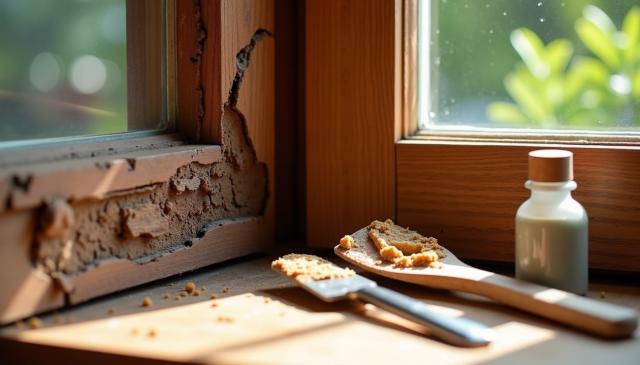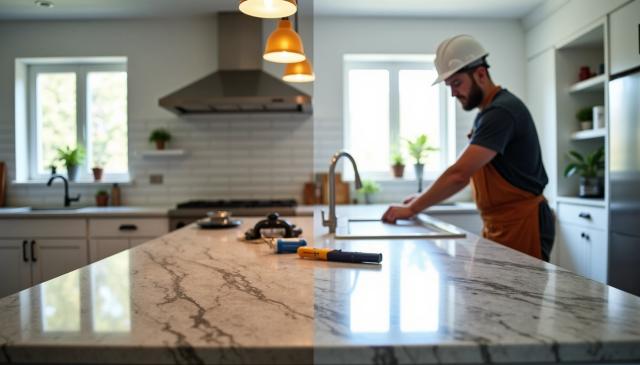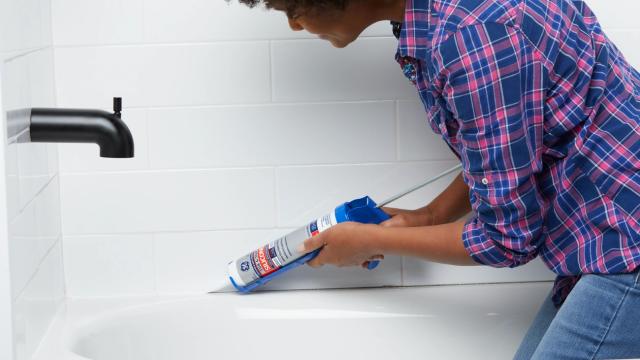
Wood Rot Repair Made Easy: Expert Methods to Save Your Da...
Wood rot poses a serious threat to your home's structural integrity, affecting both safety and ap...

Kitchen countertop replacement typically costs between $1,000 and $5,500 for most standard kitchens, with your material choice driving the biggest price differences. Many homeowners discover their final bills run higher than expected because several necessary expenses get overlooked during initial planning. Getting a clear picture of all costs upfront helps you avoid budget surprises mid-project. Beyond the countertop materials themselves, you'll need to factor in removing your old countertops, adjusting plumbing connections, choosing edge treatments, and paying installation fees. Comparing different materials and countertop material options early in your planning helps you make smart decisions that balance what you want with what you can afford. This guide covers everything you should consider when budgeting for new kitchen countertops, reveals the hidden costs that often catch homeowners off guard, and shows you practical ways to save money without cutting corners on quality.
Kitchen countertop replacement costs depend on several factors, with material choice, kitchen size, and installation complexity being the primary factors that drive the biggest price differences. Breaking down these expenses helps you understand where your money goes and plan your budget more effectively.
Most kitchen countertop projects fall between $2,000 and $4,500 nationally, though you might pay as little as $1,200 for budget installations or $6,000+ for premium materials. Your location affects these numbers significantly—expect prices in major metropolitan areas to run 15-30% higher than in rural regions.
National Average Countertop Replacement Costs (2025)
|
Project Scale |
Cost Range |
Typical Kitchen Size |
|---|---|---|
|
Budget |
$1,200-$2,000 |
30-40 sq. ft. |
|
Mid-range |
$2,000-$4,500 |
40-60 sq. ft. |
|
Premium |
$4,500-$7,000+ |
60-80+ sq. ft. |
These ranges include both materials and professional installation, but don't cover removing existing countertops or making changes to your cabinetry.
The price per square foot provides the most accurate way to compare different countertop options. This number includes both the raw material and fabrication work needed to create your countertops.
Most countertop materials range from $15 to $200 per square foot installed:
Measure the length × width of each countertop section, including islands and backsplashes, then add 10% extra for waste and cutting. Unusual shapes, sink cutouts, and specialty edge treatments each add $100 to $300 to your total. L-shaped counters or islands need seams that increase both labor and material costs.
The split between labor and material expenses varies considerably based on your countertop choice:
Labor vs. Material Cost Breakdown
|
Material Type |
Material Cost % |
Labor Cost % |
Complexity Factor |
|---|---|---|---|
|
Laminate |
40-50% |
50-60% |
Low |
|
Granite |
60-70% |
30-40% |
Medium |
|
Quartz |
65-75% |
25-35% |
Medium |
|
Marble |
70-80% |
20-30% |
High |
|
Concrete |
30-40% |
60-70% |
Very High |
Installation complexity drives labor costs substantially. Simple replacements with minimal changes typically cost $300-$500 for labor alone, while complex installations with multiple seams, cutouts, or specialty edges can reach $1,000-$2,000 in labor charges.
Professional fabrication includes several specialized steps:
Quality installation ensures your countertops look great and last for years. Trying to cut corners on labor often leads to expensive repairs down the road, especially with natural stone that needs specialized tools and experience to handle properly.
Your material choice drives the biggest impact on your final kitchen countertop costs, affecting both your upfront budget and ongoing maintenance expenses. Each countertop material comes with distinct pricing based on availability, difficulty of installation, and specific installation requirements. Understanding these differences helps you choose options that balance appearance, durability, and cost for your specific needs.
Natural granite remains a popular choice, typically costing between $40 and $100 per square foot installed. This natural stone offers excellent durability when properly sealed and maintained.
Granite Countertop Cost Factors
|
Grade Level |
Price Range (per sq ft) |
Characteristics |
|---|---|---|
|
Entry-level |
$40-$55 |
Basic patterns, limited color options |
|
Mid-grade |
$55-$75 |
More varied patterns, popular colors |
|
Premium |
$75-$100+ |
Exotic colors, rare patterns, thicker slabs |
Pricing varies mainly based on color rarity, pattern complexity, and where the stone comes from. Black, brown, and beige granites typically cost less than blue, red, or green varieties. You'll also pay extra for edge treatments ($10 to $40 per linear foot) and sealing ($200 to $300 every 1-2 years).
Engineered quartz countertops range from $55 to $120 per square foot installed. Unlike granite, quartz offers consistent patterns and doesn't require sealing.
The manufacturing process combines approximately 90% ground quartz with resins and pigments, which explains why premium brands cost more than lesser-known alternatives, despite having similar appearances.
Several factors affect quartz pricing:
Maintenance costs stay minimal beyond routine cleaning, making quartz a cost-effective long-term investment despite the higher initial expense.
Marble countertops represent luxury, with installed costs between $65 and $180 per square foot. This classic material varies significantly in price based on origin and rarity.
Marble Varieties and Price Points
|
Type |
Price Range (per sq ft) |
Origin |
|---|---|---|
|
Carrara |
$65-$90 |
Italy |
|
Calacatta |
$100-$150 |
Italy |
|
Statuario |
$125-$180 |
Italy |
|
Danby |
$80-$120 |
USA |
Marble requires careful maintenance, adding approximately $300 to $500 annually for professional cleaning and resealing. Specialty finishes, such as honed or leathered surfaces, can add $10 to $25 per square foot.
Laminate offers the most budget-friendly option, typically costing $15 to $40 per square foot installed. Modern manufacturing has greatly improved laminate's appearance, creating convincing stone-look options.
Installation costs make up a larger percentage of a laminate's total price compared to stone options. Still, total project costs remain significantly lower than natural materials.
Pro Tip: Higher-end laminate with premium edges can look remarkably similar to stone while saving thousands on your project.
Wood countertops average $40 to $80 per square foot installed. Your choice of wood species primarily drives pricing differences.
Wood Options and Price Ranges
|
Wood Type |
Price Range (per sq ft) |
Hardness |
|---|---|---|
|
Maple |
$40-$60 |
High |
|
Oak |
$45-$65 |
High |
|
Walnut |
$65-$80 |
Medium |
|
Cherry |
$55-$75 |
Medium |
Maintenance costs include periodic oiling ($20 to $30 every 3-6 months) and occasional sanding/refinishing ($200 to $400 every 5-10 years).
Custom concrete countertops range from $65 to $135 per square foot installed. Labor intensity drives the primary cost factor, as these countertops are typically handcrafted on-site or in local workshops.
Concrete pricing increases with:
Ongoing maintenance requires sealing 2-4 times annually, adding $100 to $200 per year to ownership costs. Despite higher maintenance, concrete offers unmatched customization potential for unique kitchen designs.
Beyond the material prices themselves, several additional expenses often catch homeowners off guard during countertop replacement projects. Your final bill might run 20-30% higher than initial estimates when these costs get overlooked during planning. Knowing about these potential extras upfront helps you budget accurately and avoid financial surprises during the project.
Removing your existing countertops typically costs $200-$500, depending on the type you currently have and the complexity of the removal process. Stone countertops require specialized equipment and multiple workers, which increases removal costs compared to laminate surfaces that can be removed more easily.
Table: Countertop Removal Costs by Material
|
Material Type |
Average Removal Cost |
Disposal Fee |
|---|---|---|
|
Laminate |
$100-$200 |
$50-$100 |
|
Granite/Stone |
$300-$500 |
$100-$200 |
|
Solid Surface |
$200-$300 |
$75-$150 |
Pro Tip: Ask whether your contractor includes removal in their quote or charges separately—some companies offer discounted removal when you purchase new countertops through them.
Installing sinks and cooktops often requires plumbing or electrical adjustments that add $200-$600 to your project. Moving these fixtures from their current locations increases costs substantially.
Plumbers charge $75-$150 per hour plus parts to disconnect and reconnect sinks. Electricians bill $80-$100 per hour for cooktop wiring changes. Both typically require minimum service calls of 1-2 hours, even for simple tasks.
Decorative edge profiles add $10-$40 per linear foot, depending on how elaborate they are. Standard eased edges usually come included with your countertops, but options like ogee or bullnose edges cost extra.
Each sink or appliance cutout adds $100-$300 to your total. Specialty cutouts for farmhouse sinks or unusual shapes cost more because of increased labor time and material waste.
Countertop delivery fees range from $50-$200 based on distance and how heavy your materials are. Installation labor typically adds $300-$500 for straightforward projects.
Several factors can push installation costs higher:
Always confirm whether quoted prices include both delivery and installation, as companies sometimes list these as separate line items.
Minor countertop replacements rarely need permits, but larger kitchen projects involving plumbing or electrical work usually do. Permit fees vary by location but generally range from $100-$300.
Some areas require completed work to pass inspection before final approval. Failed inspections can mean additional costs for corrections and re-inspection fees. Checking local requirements early prevents unexpected compliance expenses.
Pro Tip: Even when permits seem optional, getting them protects you from potential resale issues, since unpermitted work can complicate property sales later.
Saving money on countertop replacement doesn't require cutting corners on quality or style. Smart planning and strategic choices can reduce your total costs by 20-40% while still getting the kitchen you want. These practical approaches help you stretch your budget without sacrificing the final result.
Choosing cost-effective materials offers the biggest opportunity to save money on your project. Mid-grade options often give you the best balance between price and performance.
Cost-Effective Material Alternatives
|
Premium Material |
Budget Alternative |
Potential Savings |
|---|---|---|
|
Granite ($40-$100/sq ft) |
Granite tiles ($15-$25/sq ft) |
Up to 75% |
|
Quartz ($55-$120/sq ft) |
Solid surface ($35-$65/sq ft) |
Up to 45% |
|
Marble ($65-$180/sq ft) |
Cultured marble ($25-$60/sq ft) |
Up to 65% |
|
Concrete ($65-$135/sq ft) |
Concrete overlay ($25-$50/sq ft) |
Up to 60% |
High-quality laminate with stone-look patterns can save you up to 80% compared to natural materials while still delivering an attractive appearance.
Your current cabinets might be in better shape than you think. Keeping them in place can cut 30-50% from typical kitchen renovation costs, and minor updates cost far less than complete replacement.
Check if your cabinets are structurally sound first. You can refresh them with:
Getting 3-5 detailed estimates often reveals price differences of 15-30% for the same work. A $3,000 countertop project might vary by $450-$900 between contractors, so comparison shopping pays off.
Request itemized quotes that break down:
Use these detailed quotes to negotiate with your preferred contractor—many will match or beat competitors' prices to win your business.
Some premium features add substantial cost without giving you much extra functionality. Elaborate edge profiles can add $10-$40 per linear foot to your project without improving performance.
Consider these money-saving choices:
Pro Tip: Schedule your project during slower seasons (January-February or September-October) when fabricators often offer 10-15% discounts to keep their crews busy.
Comparing all your countertop options side by side helps you spot the best values and potential budget concerns before you make your final choice. This breakdown shows you the key differences between popular materials so you can choose what works best for your kitchen and budget.
|
Material |
Cost/sq ft (installed) |
Durability (1-10) |
Annual Maintenance |
Lifespan (years) |
Best For |
|---|---|---|---|---|---|
|
Laminate |
$15-$40 |
4 |
Minimal ($0-50) |
10-15 |
Budget projects |
|
Tile |
$20-$50 |
6 |
Moderate ($50-100) |
15-20 |
DIY installations |
|
Butcher Block |
$40-$80 |
5 |
High ($100-200) |
15-25 |
Warm aesthetics |
|
Solid Surface |
$35-$65 |
6 |
Low ($0-75) |
15-20 |
Seamless looks |
|
Granite |
$40-$100 |
8 |
Moderate ($100-150) |
20+ |
Value/durability |
|
Quartz |
$55-$120 |
9 |
Minimal ($0-50) |
25+ |
Low maintenance |
|
Marble |
$65-$180 |
7 |
High ($200-300) |
20+ |
Luxury aesthetics |
|
Concrete |
$65-$135 |
7 |
High ($150-250) |
20+ |
Customization |
|
Stainless Steel |
$75-$150 |
8 |
Low ($50-100) |
25+ |
Professional look |
Pro Tip: Visit showrooms to see actual material samples before deciding—photos don't always show the true colors and patterns that might influence your choice.
The right countertop for your kitchen balances your budget with your practical needs. Materials that cost more upfront often save money over time through lower maintenance and longer lifespans. Quartz costs more than granite initially, but its minimal upkeep makes it worthwhile for busy families. Laminate remains the clear winner for strict budget constraints.
Choosing new countertops comes down to balancing your budget against your practical needs and style preferences. Material choice drives the biggest cost differences, from $15 per square foot for laminate up to $180+ per square foot for premium marble. The upfront price tells only part of the story, though. When you factor in maintenance costs, durability, and how long each material lasts, spending more initially often saves money over time.
Hidden expenses can push your final bill 20-30% higher than initial estimates. Make sure your quotes include removal of old countertops, disposal fees, edge treatments, and full installation costs. Smart choices, such as keeping your current cabinets, selecting simpler edge profiles, and obtaining multiple contractor bids, can save thousands without compromising on quality.
Your countertops serve as both workspace and visual centerpiece in your kitchen. With careful planning and a clear understanding of all costs involved, you can move forward confidently with your countertop replacement and enjoy the results for decades to come.
GET THE ESSENCE OF RELEVANT HOME
IMPROVEMENT TOPICS IN LESS THAN 5 MINUTES

Wood Rot Repair Made Easy: Expert Methods to Save Your Da...
Wood rot poses a serious threat to your home's structural integrity, affecting both safety and ap...

Cracked, peeling, or moldy bathtub caulk is a sign of trouble ahead. When caulk fails, water seep...

Thanks for joining our homeowners’ community.
Stay tuned!
Choose the category
Choose the category